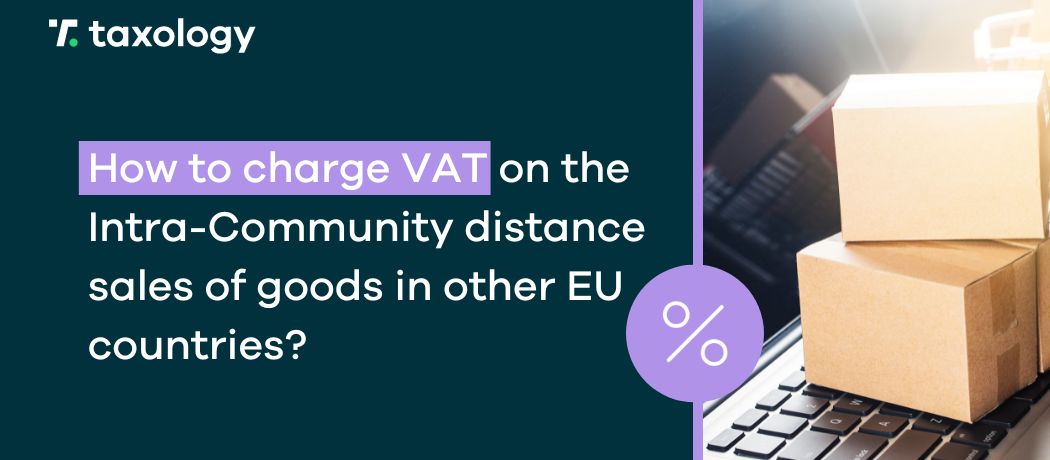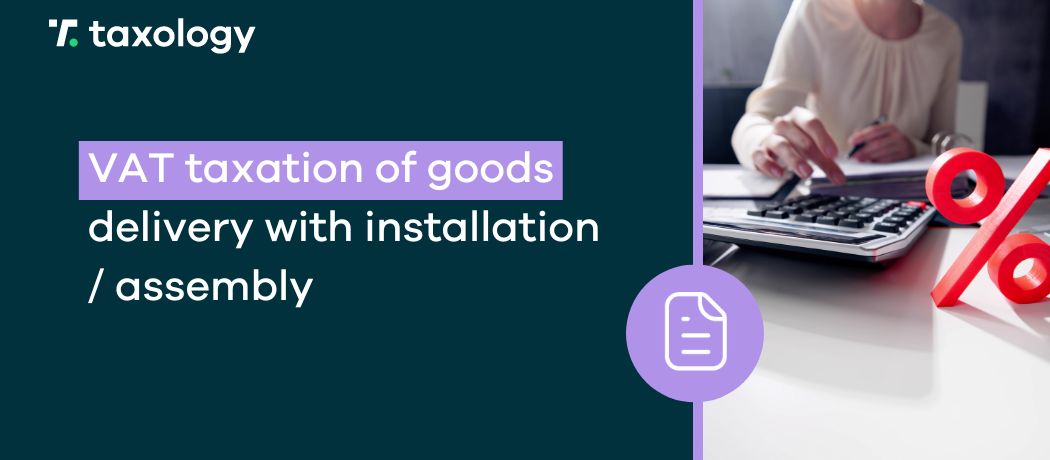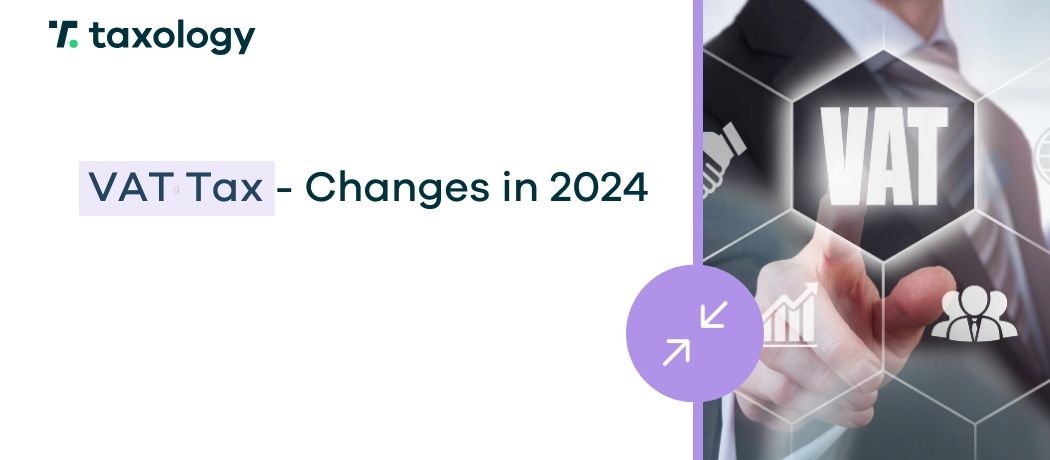Ordering furniture with delivery services or electrical and/or electronic devices along with the installation of the device is a common comprehensive service offered by many companies. However, when it comes […]
Read in: 3 minHow to charge VAT on the Intra-Community distance sales of goods in other EU countries
- Last update: 23.02.2024
- Published: 06.12.2021
- Read in: 8 min
Intra-Community distance sales of goods are simply mail-order sales of goods to private customers from European Union countries.
Intra-Community distance sales of good: what exactly is it?
Intra-Community distance selling of goods, is simply the mail-order sale of goods to private customers from European Union countries. From the 1 July 2021, this concept replaced the previous definitions of mail-order sales. According to the Act, several conditions must be simultaneously met in order to classify a distance sale of goods as a Intra-Community distance sales of goods:
- The buyer is excluded from participating in the process of transporting the goods, the shipment of the goods to the buyer is handled by the seller or a third party.
- The dispatch of goods takes place from the territory of one EU Member State to the country of destination of goods in another Member State.
- The purchaser is a private individual or a company not subject to VAT and who is not required to settle Intra-Community acquisitions of goods, i.e. Intra-Community acquisition of goods (ICA).
- New means of transport as well as goods requiring installation or assembly with a trial run cannot be part of the sale.
The exceptions of Intra-Community sales of goods
The provisions on Intra-Community distance sales goods do not apply to the sale of works of art, collectors’ items, antiques, second-hand goods either – if the taxable amount has been determined in accordance with the special procedures set out in Art. 120(4) or (5) of the VAT Act and provided that the taxpayer making the supply holds the documents confirming that the supply has been made in accordance with these special rules. It worked in the same way for mail-order sales. In contrast, under the Intra-Community sales of goods, we are permitted to sell excise goods.
How to tax the Intra-Community distance sales of goods?
As a general rule, Intra-Community distance sales of goods should be taxed in the country of supply. How does this affect invoicing, the VAT rate and the tax point? Will the use of the EU procedure (OSS) affect your choice of applicable rules?
It turns out that in such a case, a peculiar situation may arise, in which the invoicing will be subject to the provisions of a different country than the one that will determine the VAT rate and the tax point.
This rule mainly applies to taxpayers who have exceeded the distance selling limit.
Limit on distance selling and VAT-OSS
The provision for determining the place of delivery remains unchanged after the 1st July 2021. however, the mail-order limit has been reduced and now only amounts to €10,000 (PLN 42,000). This is the net amount after deducting value added tax. The method of calculating this limit has also changed. The threshold applies to all the supply (ICS) under the Intra-Community distance sales of goods, i.e. we have to add up the total value of all distance sales of goods to each EU country. At the same time, a special VAT-OSS (one stop shop) procedure has been introduced, which is intended to facilitate the settlement of Intra-Community distance sales of goods. The procedure, introduced as part of the so-called e-commerce package, became effective as of 1 July 2021. There is no obligation to use the procedure, but it allows us to avoid having to register and settle VAT in every EU country where our goods are shipped or transported.
Currently, we have 2 available tax settlement options for Intra-Community distance sales of goods:
- to register for the VAT-OSS procedure,
- VAT registration and settlement in the Member Staate of consumption,
Intra-Community distance sales of goods and invoicing
Let us assume that the taxpayer does not exercise the OSS scheme: they should issue an invoice as to keep a record in each case of distance selling. The applicable rules for invoicing are those of the Member State of the destination of the supply of goods. In the case of taxpayers using the VAT-OSS procedure, the situation is quite the opposite – the taxpayer should follow the VAT regulations of their Member State of identification However, please note – when speaking about Polish taxpayers (and others for whom the Member State of identification is Poland), the seller is not obliged to issue invoices at all (even at the buyer’s request). In case they decide to issue an invoice, they should do so in accordance with the Polish VAT regulations.
Intra-Community distance sales of goods and VAT obligations
If the place of taxation of the Intra-Community distance sales of goods, is also the Member State of consumption, the tax point should be determined in accordance with the VAT legislation of that country. So, taxpayers must still be mindful of the applicable VAT legislation in the other 26 Member States. According to our VAT payment obligation chart: not in every country does issuing an invoice result in tax obligation: in some, it is only for the provision of services (e.g. the Czech Republic) or for a continuous supply (e.g. France) and in some, it has no effect whatsoever (e.g. Estonia or Finland). The same applies to the receipt of advance payments – in Greece, for example, the VAT payment obligation on advance payments arises only in the case of intra-Community supply of services.
Taxation of Intra-Community distance sales of goods - examples
Example 1
A taxpayer with a registered office in Poland dispatches goods to consumers from other EU member states ( i. e. France, Germany, the Czech Republic, Belgium and Spain), and in the very first month of 2021, their total value has already exceeded the threshold of PLN 42,000. As of July 2021, the taxpayer is obliged to pay VAT on the aforementioned transactions in the Member States of consumption, i.e. France, Germany, Czech Republic, Belgium and Spain, respectively. The taxpayer has opted to register for the OSS VAT. How should they record their transactions?
A taxpayer using VAT OSS in Poland is not obliged to issue invoices. However, should they decide to issue invoices, they must issue them in accordance with the Polish VAT regulations. The invoice must indicate the VAT rate applicable to the country in which the transaction was subject to taxation. Tax liability must also be recognised in accordance with the legislation of the Member state of consumption. The taxpayer is not obliged to record Intra-Community distance sales of goods on a fiscal cash register.
Example 2
A taxpayer with a registered office in Poland dispatches goods to consumers in Lithuania, Latvia and Estonia, the value of which in the first half of 2021, has already exceeded the threshold of PLN 42,000. As of July 2021, the taxpayer is obliged to pay VAT on the aforementioned transactions in the Member States of consumption, i.e. Lithuania, Latvia and Estonia. As the taxpayer has local VAT registrations in the aforementioned countries, they have not exercised the option to register for OSS VAT. How should they record their transactions?
The taxpayer should submit VAT declarations and pay VAT directly in each of these countries (Lithuania, Latvia and Estonia). The taxpayer will then be required to issue an invoice, in accordance with the invoicing regulations of the respective Member State of consumption. Due to the fact that the Intra-Community distance sales of goods, carried out by the taxpayer, are taxed in the territory of other EU Member States, according to Polish regulations they do not need to be registered on a fiscal cash register.
VAT rates and Intra-Community distance sales of goods
Same situation here – taxpayers performing Intra-Community distance sales of goods should know the VAT rates applicable to their products in all Member States of consumption. Importantly, if a given good is subject to preferential taxation in one country (e.g. a dietary supplement taxed at 8%), this does not necessarily mean that reduced rates will also apply to such goods in other EU countries (e.g. in Latvia or Lithuania supplements are not subject to reduced VAT rates).
If you are interested in finding out more about the taxation regulations for goods in other EU member states, please contact us. We will be more than happy to assist you in assigning the correct VAT rate or in determining the tax point.




